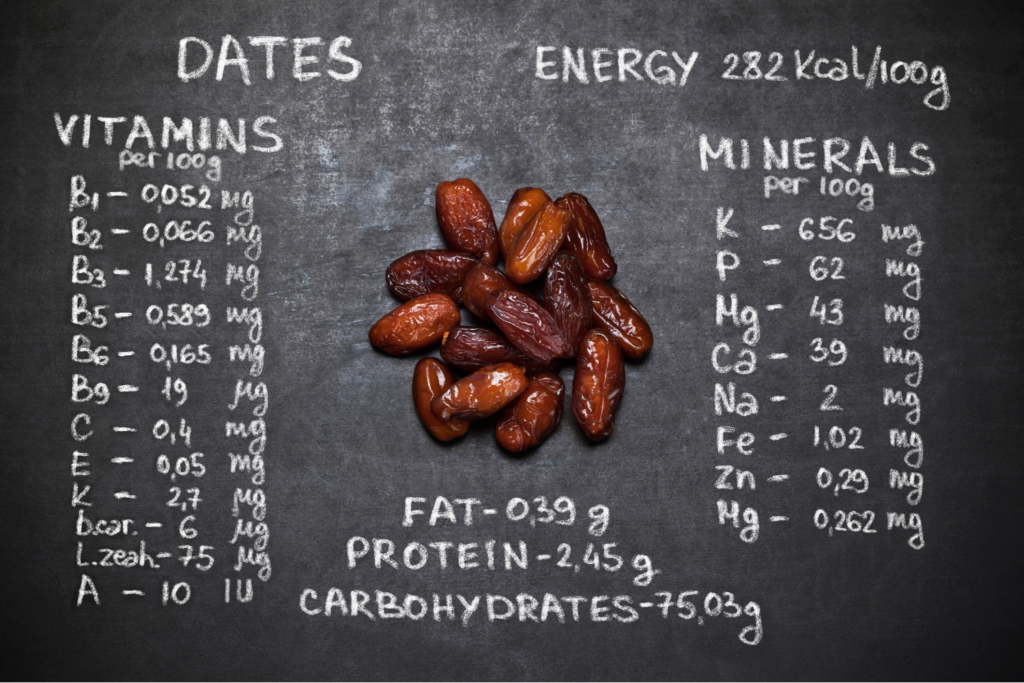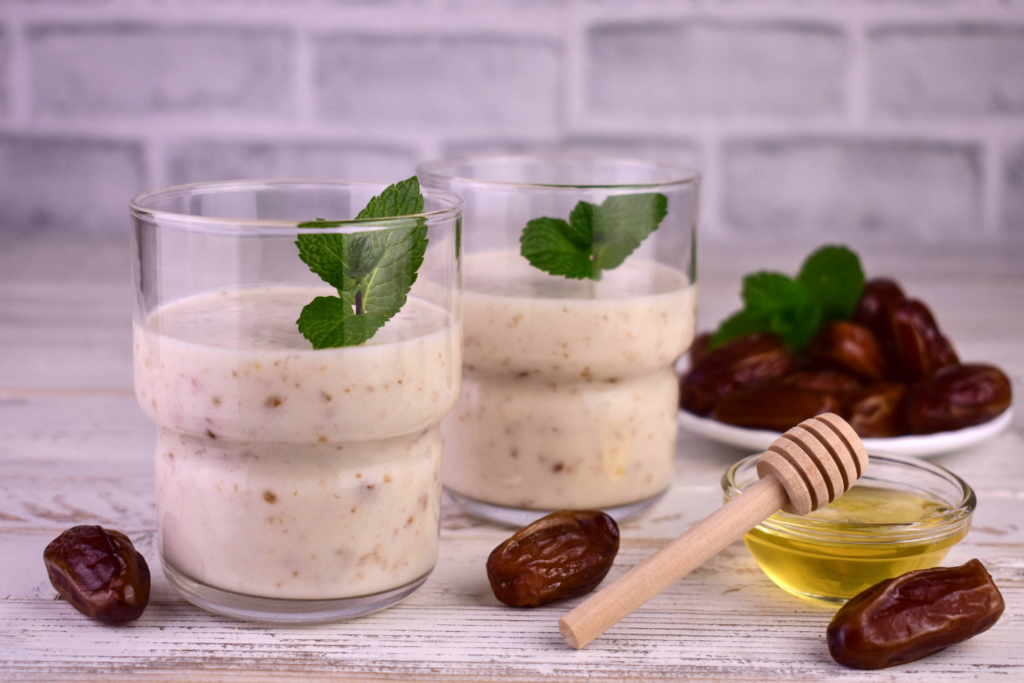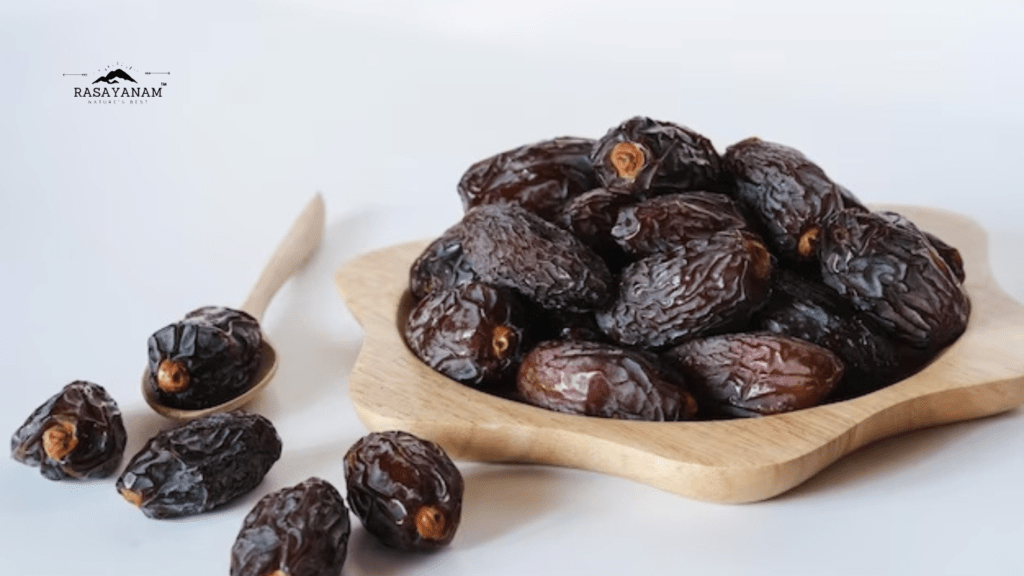Introduction
In recent years, the search for natural remedies for chronic diseases like diabetes has increased. This has led to an increase in people’s interest in traditional foods that claim to provide health benefits. One such food that has some claimed benefits of helping people with Diabetes is Ajwa Dates or Ajwa Khajoor. Yeah, that’s right. Many studies, such as the one done by the National Library of Medicine, prove that diabetes can be managed by consuming dates.
Now the question arises: what is the property of dates that help you manage diabetes?
There could be many reasons, but the primary reason is the presence of a low Glycaemic Index, a high fibre content and polyphenols’ potent antioxidant effect. Polyphenolic chemicals, which can block enzymes like α-amylase and α-glucosidase, are another potential mechanism of action.
In addition to alleviating diabetes-related difficulties, flavonoids found in dates can stimulate β-cells by boosting the number of islets and β-cells, restoring endocrine pancreatic tissues, lowering β-cell apoptosis, and activating insulin receptors after an increase in insulin secretion.
Besides their exceptional taste, Ajwa dates are a beneficial choice for diabetes management. Moreover, they bear significant religious and cultural importance in Islam.
But what sets them apart?
To learn more about this, let us study the nutritional composition of Al Ajwa dates.
Nutritional Composition of Ajwa Dates
Al Ajwa dates are incredibly nutrient-dense fruits, including potassium, iron, magnesium, and more, with several health advantages. Because they are so full of vital nutrients, they are an excellent source of carbohydrates. Glucose and fructose are two common natural sugars that make up these carbs.

Ajwa dates or Ajwa Khajoor are also quite high in dietary fibre, which helps lessen the risk of abrupt spikes in blood sugar by slowing down the release of sugar into the bloodstream. Magnesium helps in maintaining bone health and muscles, while potassium helps control blood pressure. The synthesis of energy and preserving a healthy neurological system depend on B vitamins.
Having Al Ajwa dates can be a tasty approach to supporting a healthy, balanced lifestyle and adding these essential elements to your diet.
How do Ajwa dates impact Blood sugar levels?
Since ajwa dates have a Low Glycaemic Index and a high fibre content, they are good for diabetics. Compared to other high-glycaemic Index foods, Ajwa Khajoor raises blood sugar levels more slowly and gradually because of their low Glycaemic Index. This is essential for properly controlling blood sugar levels. Also,
Ajwa dates include fibre, important for sustaining steady blood sugar levels. Fibre encourages the body to absorb sugar more slowly, which helps avoid sharp blood sugar spikes. They aid in preventing sharp rises in blood sugar by slowing down the rate of absorption.
Ajwa dates also contain Polyphenolic chemicals, which can block enzymes like α-amylase and α-glucosidase, which are another potential mechanism of action. In addition to alleviating diabetes-related difficulties, flavonoids found in dates can stimulate β-cells by boosting the number of islets and β-cells, restoring endocrine pancreatic tissues, lowering β-cell apoptosis, and activating insulin receptors after an increase in insulin secretion.
They should be included in a balanced diet and consumed in moderation. Even if they are beneficial for diabetics, blood sugar levels should still be monitored, and the total amount of carbohydrates consumed should be taken into account. It is essential to seek advice from a qualified nutritionist or healthcare expert in order to create a customised meal plan that includes Ajwa dates or any other dietary modifications.
How and when to consume
Ajwa dates have numerous benefits, and they can be consumed in many different ways depending on individual preference and convenience.Some of the ways to consume ajwa dates are:
1. As a Snack:
Ajwa dates are a convenient and nutritious snack. You can Simply enjoy a few dates on their own for a quick energy boost during the day.
2. Pre-Workout:
Consuming Ajwa dates before a workout session gives your body a natural source of carbohydrates for sustained energy. They can help fuel your exercise and prevent fatigue.
3. In Smoothies:
Add chopped Ajwa dates to your smoothies for a natural sweetener and extra fibre. They blend well with fruits and greens, increasing your drink’s flavour and nutritional value.

4. After the meal:
Consuming Ajwa dates after meals can help satisfy your cravings for sweets while providing a natural source of energy and aiding digestion. They can also serve as a healthier alternative to desserts high in refined sugars.
There is no specific time period for when to eat Ajwa dates. They can be consumed as snacks or as part of your meals at any time of the day. Some people prefer to eat them first thing in the morning or before engaging in physical exercise to get an energy boost. The ideal time to eat Ajwa dates ultimately comes down to your dietary patterns and personal preferences. Apart from Aiding in Diabetic Health. Let us look at the other benefits of consuming Ajwa dates.
Some other benefits of consuming Ajwa Dates.
Antioxidant and Anti-inflammatory
Due to their anti-inflammatory and antioxidant qualities, ajwa dates may be able to reduce oxidative stress and chronic inflammation linked to diabetes. Al Ajwa dates are rich in bioactive substances like flavonoids and phenolic acids, which give them potent anti-inflammatory and antioxidant qualities.
These substances aid in the body’s reduction of inflammation and elimination of dangerous free radicals. Al Madina Ajwa dates have the ability to enhance glycemic control and lessen diabetes-related complications by lowering oxidative stress and inflammation.
Digestive Health
Dates are able to help with digestion due to their high fibre content, mostly insoluble fibre that gives stool volume and promotes regular bowel movements while preventing constipation; furthermore, natural carbohydrates like fructose and glucose, which are quickly absorbed and provide energy, are found in dates.
Also, the date’s soluble fibre content supports the development of good gut flora and overall digestive health. The natural sugars and fibre in dates help to promote gastrointestinal regularity and ease discomfort associated with digestion by facilitating a smoother digestion process.
Conclusion
Ajwa dates are a good choice for diabetes management because of their lower glycemic index, fibre, antioxidants, polyphenols’ potent antioxidant effect and digestive health properties. These properties support overall health and contribute to better insulin sensitivity and improved glycemic control. But moderation is essential. Regarding dietary compatibility and portion amounts, speak with your healthcare professional.
SOME FREQUENTLY ASKED QUESTIONS
Q1: Should I visit a healthcare professional before eating Ajwa dates if I have diabetes?
A1: Yes, you should consult a healthcare expert, such as a doctor or a trained dietitian, before making any large dietary changes, especially if you have diabetes or another medical condition.
Q2: Do ajwa dates have a low glycemic index?
A2: Yes, Ajwa dates have a low glycemic index, which means they do not induce a quick surge in blood sugar levels like other sweet meals.
Q3: How are ajwa dates better than other dates?
A3: Ajwa dates are valued for their smooth texture, rich flavour, and potential health benefits, which include a lower glycemic index than other dates.
Q4: What is the best time for consuming dates?
A4: Dates are a healthful snack that may be consumed at any time of day. They deliver a fast energy boost and can satisfy sugar cravings.
Q5: Can Ajwa dates replace the diabetes medication?
A5: Ajwa dates cannot replace diabetes medications. They can supplement a balanced diet for diabetes management, but they should not be used in place of prescribed drugs or insulin therapy.





